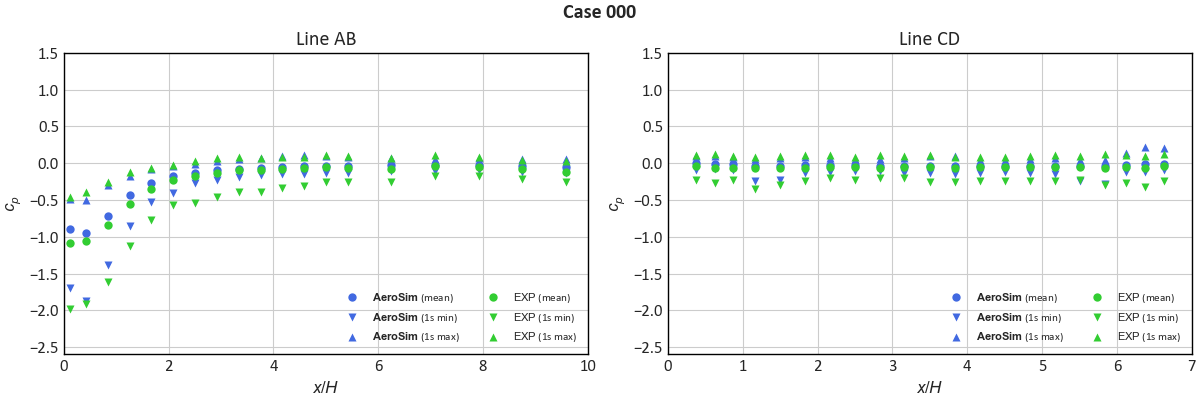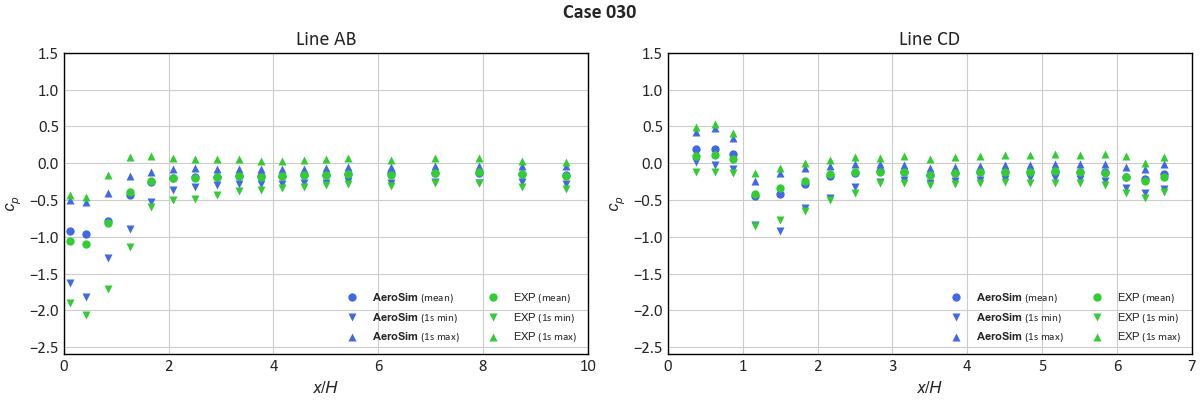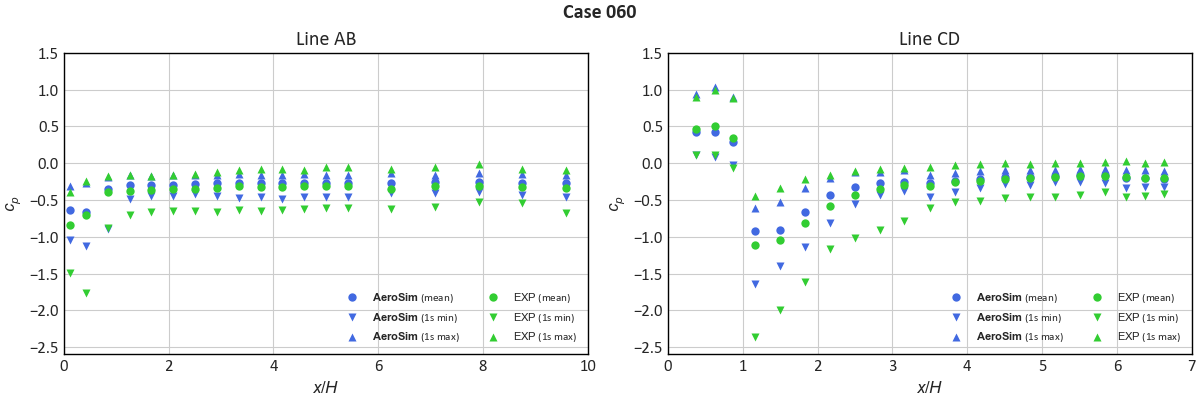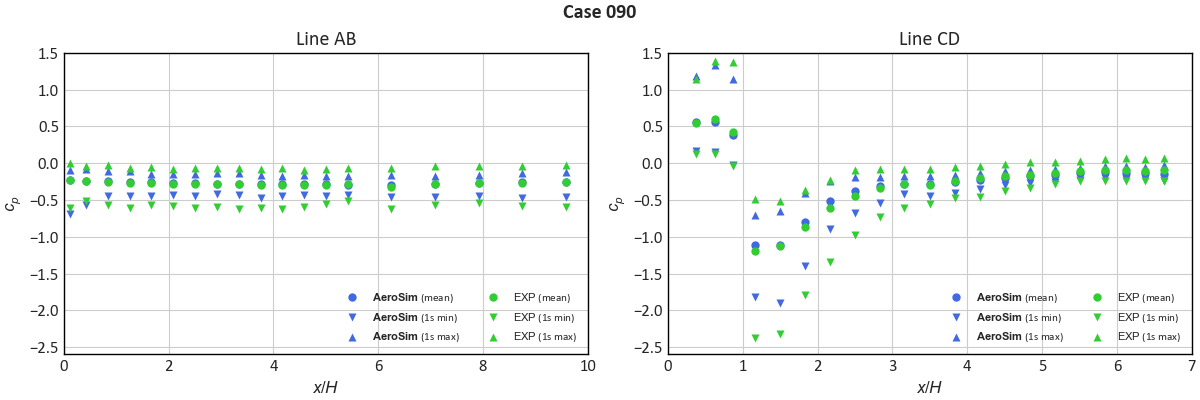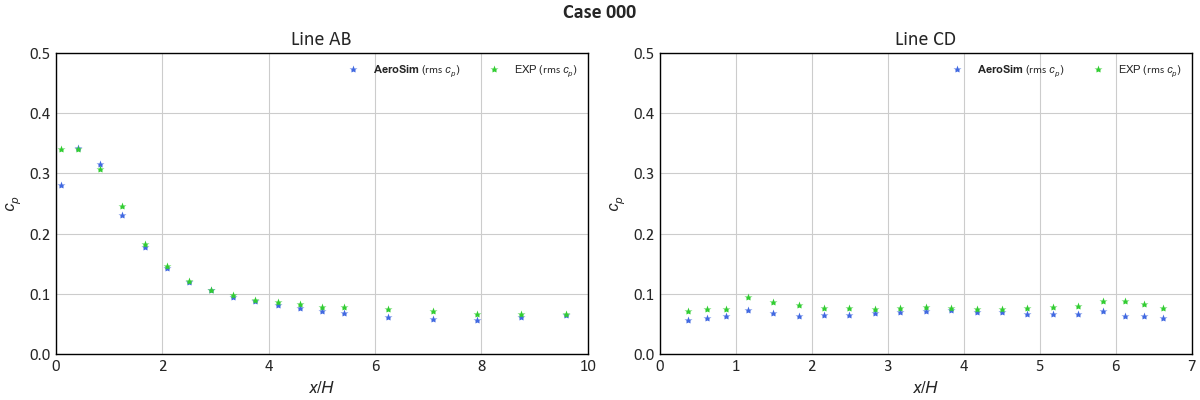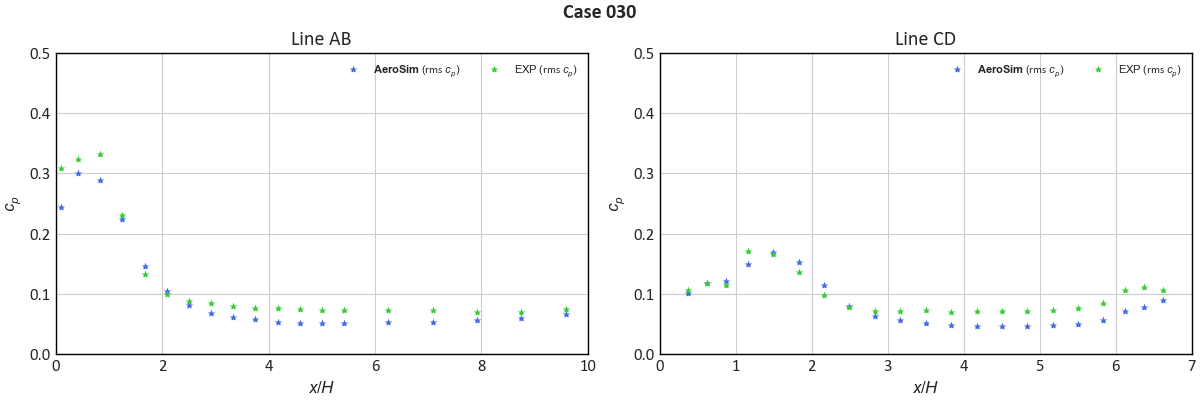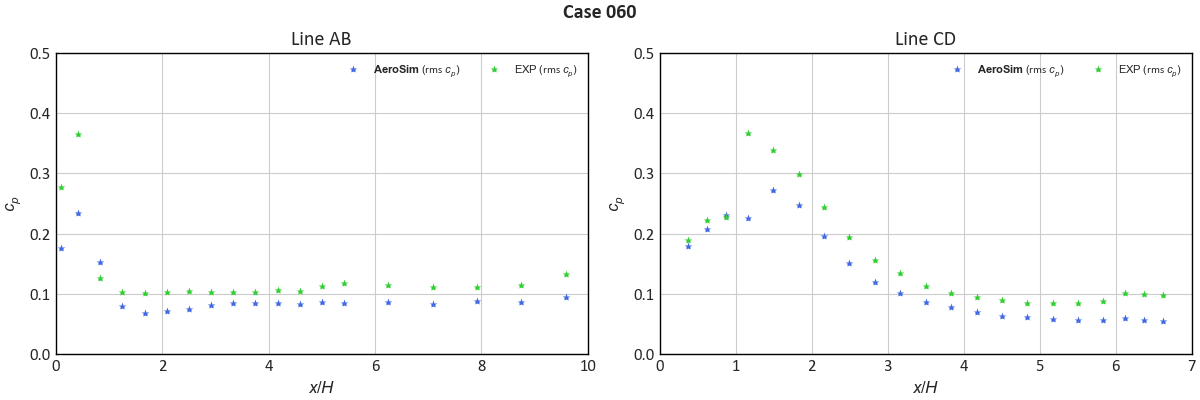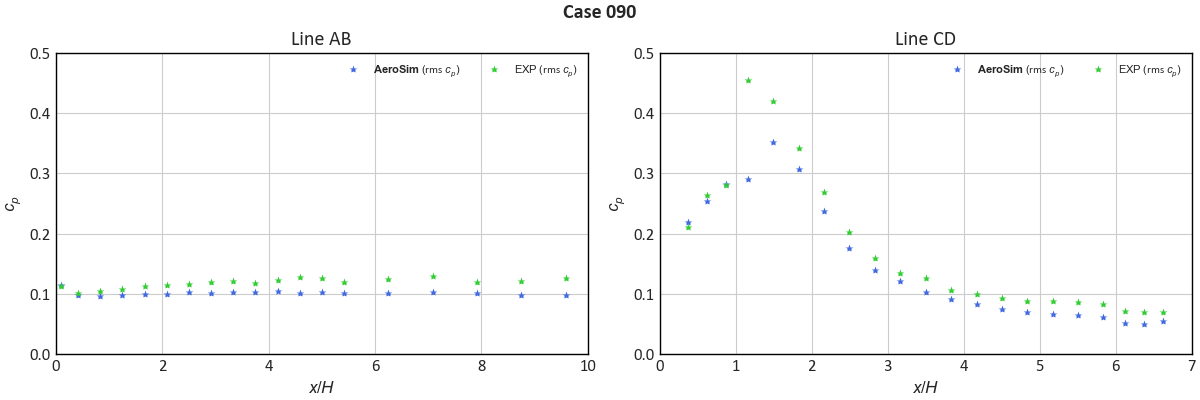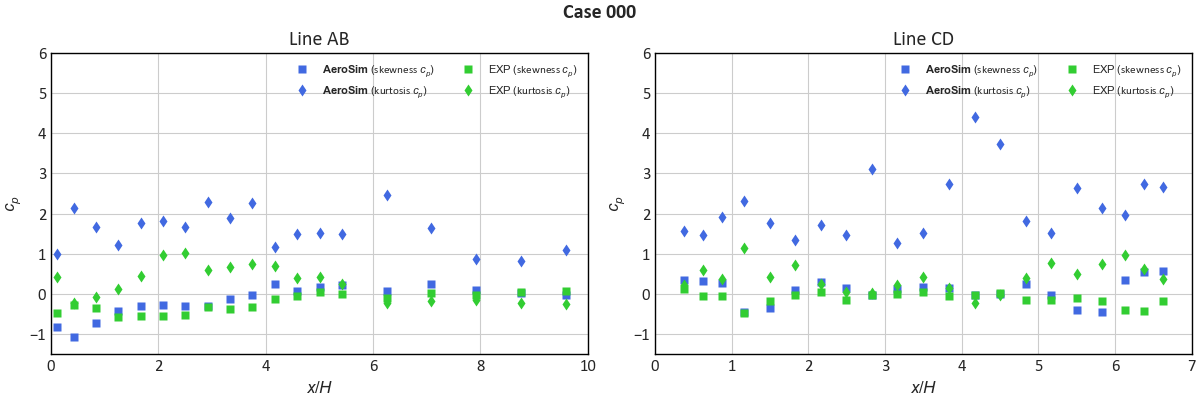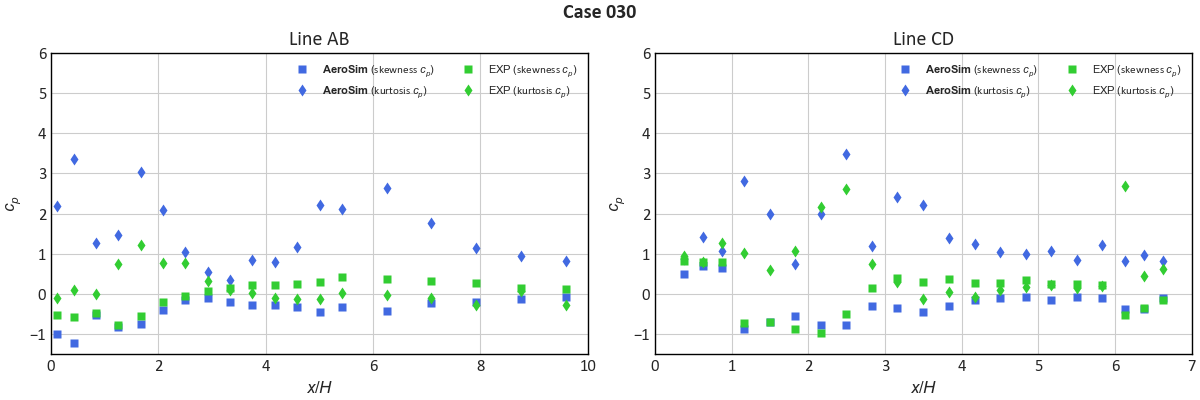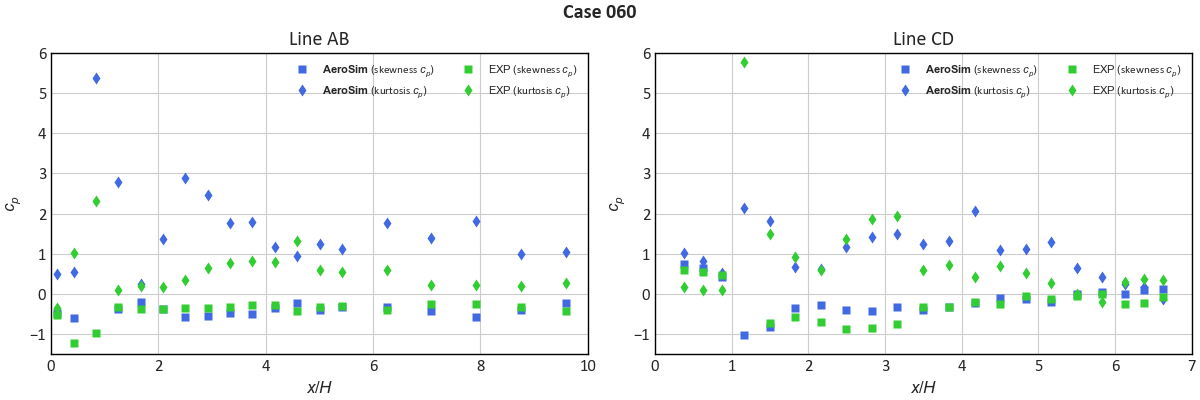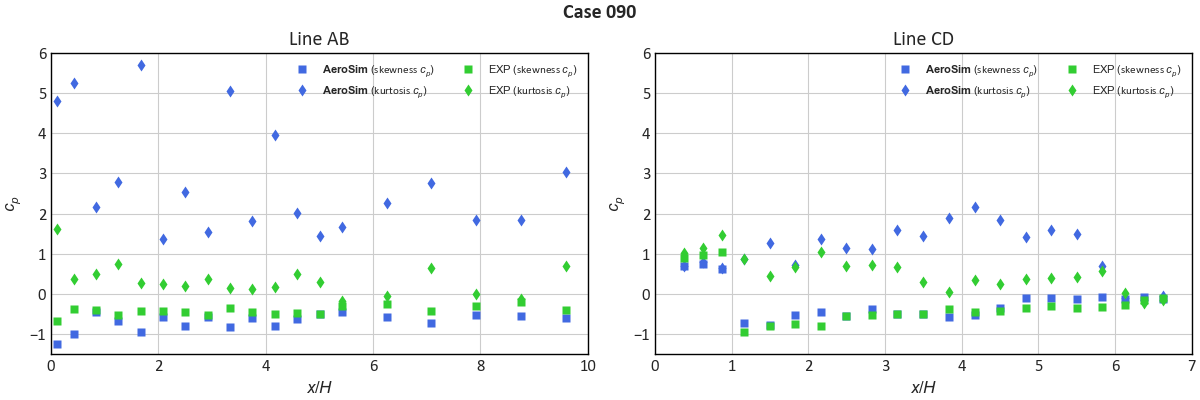NIST Building#
1. Project Description#
The objective of this project is to reproduce the wind pressure properties over the NIST Building, as measured in wind tunnel by [1]. The building is at resolution level “lvl5” of the digital wind tunnel. One convective time scale is defined as \(CTS = H / U_H\).
Source of target results:
List of analysed cases |
||||
|---|---|---|---|---|
Wind direction |
0° |
30° |
60° |
90° |
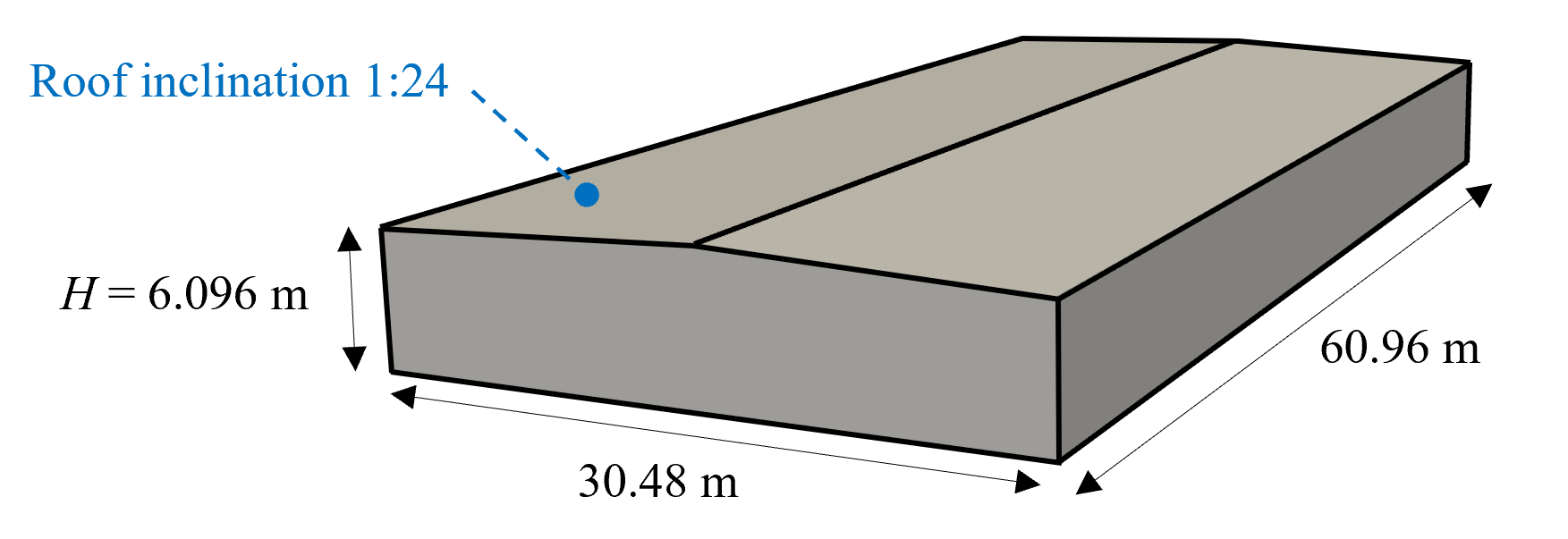
Ilustration of the geometry.#
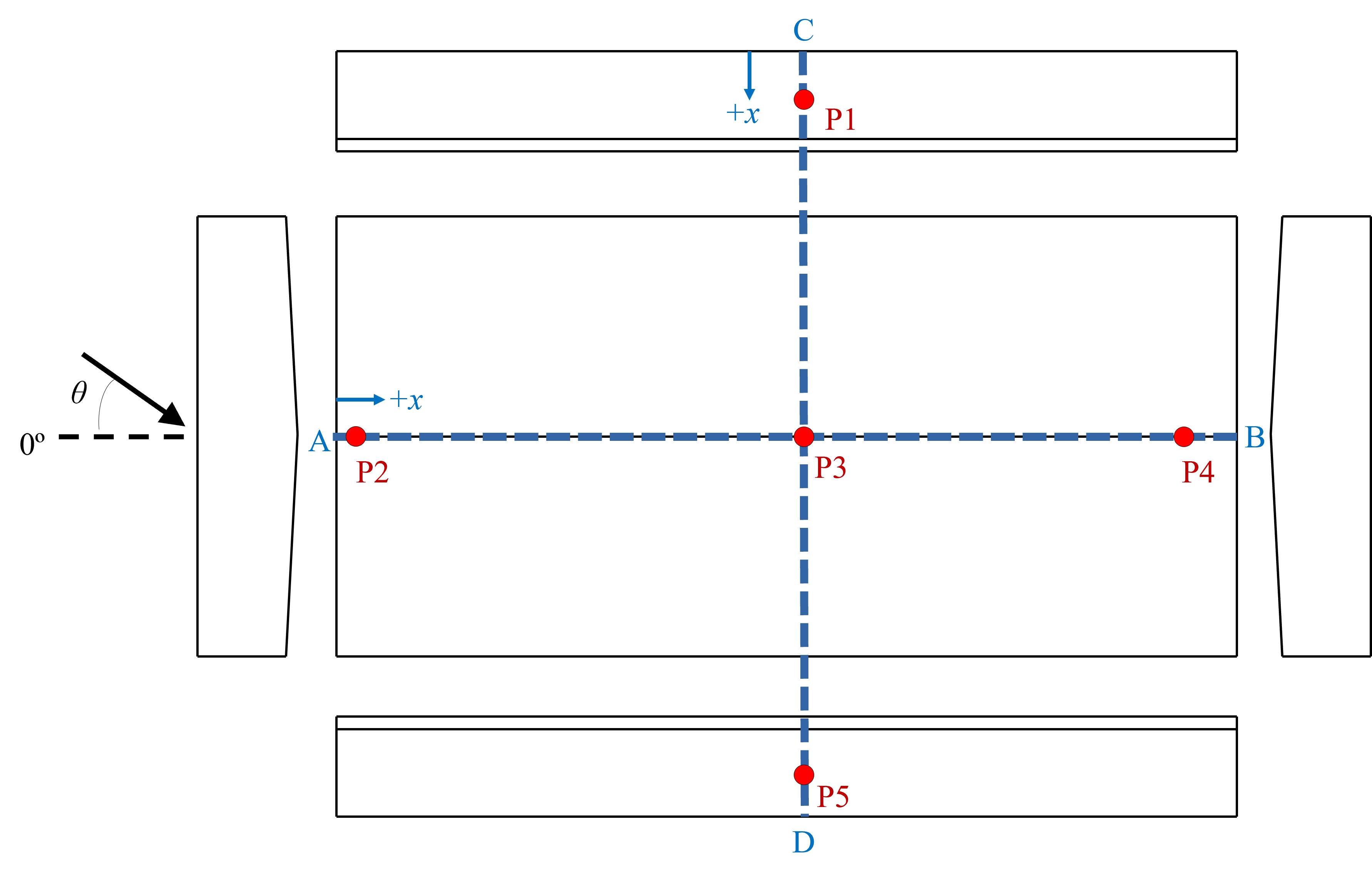
Ilustration of the probes location and wind directions.#
2. Simulation Setup#

Ilustration of the computational domain.#
Simulation parameters (same for all cases) |
|
|---|---|
\(\Delta x / H\) (spatial resolution) |
2.08E-2 |
\(\Delta t / CTS\) (temporal resolution) |
6.57E-4 |
\(\text{exports} / CTS\) (pressure acquisition frequency) |
6.25E-2 |
\(T / CTS\) (statistical sample size) |
1.05E+3 |
\(Re_H = U_H H / \nu\) |
9.41E+4 |
Computational performance (NVIDIA RTX A5500) |
||||
|---|---|---|---|---|
Case |
0° |
30° |
60° |
90° |
Node count (million) |
92 |
93 |
93 |
92 |
Allocated memory (Gb) |
14 |
15 |
15 |
14 |
Elapsed time (h) |
30 |
32 |
32 |
30 |
3. Inflow#
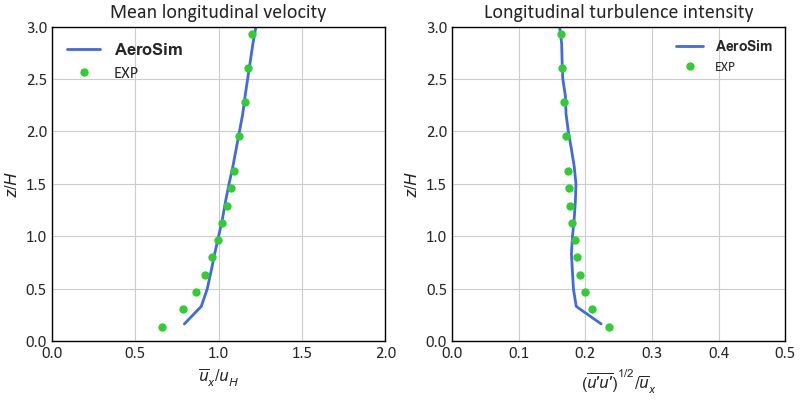
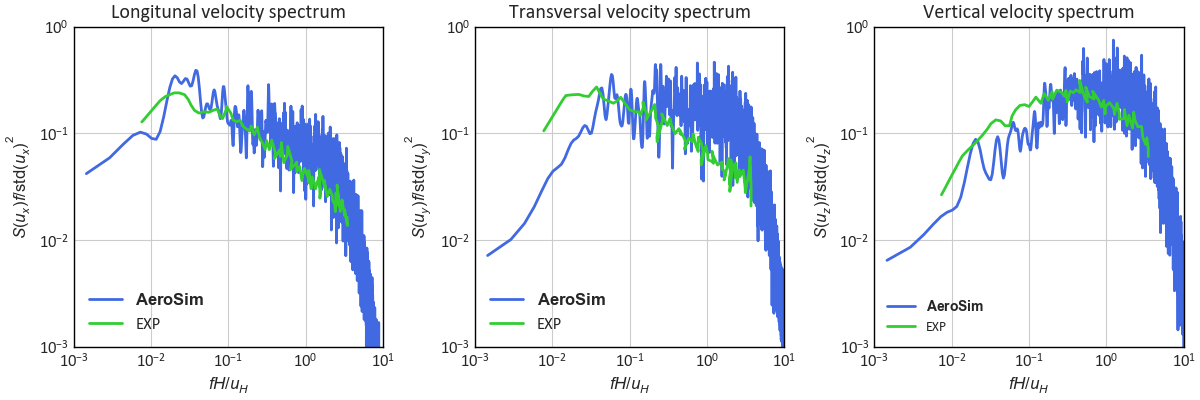
4. Results: Local Statistics#
Note
General comments:
Experimental samples of the same size (\(T / CTS\)) of the numerical samples have been selected for comparison.
The peak pressure coefficients have been evaluated over moving averages of the original signals, with window size described in the plot legends.
The acquisition frequency of the numerical calculations is significantly higher than that of the experiments, hence the numerical spectra show a higher cut-off.
Mean and Peak Pressures#
RMS Pressures#
Skewness and Kurtosis#
Pressure Spectrum#
Changelog#
Execution Notes
29 April 2024
Uploaded point comparisons, simulations executed with Nassu release v1.5.4.

